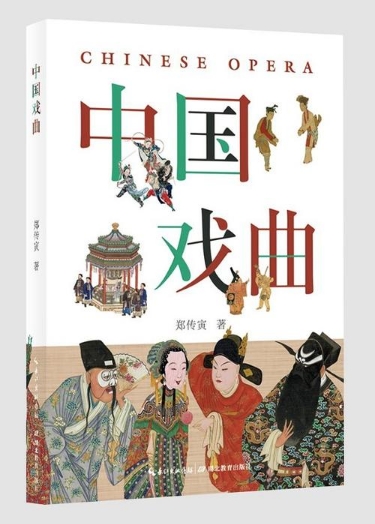Popular culture revealed at Chinese opera's roots

Chinese Opera
Chinese Opera has three volumes, “Development History,” “Art Form” and “Famous Masterpieces.” The book raises an intriguing question: Ancient China, ancient Greece and ancient India are all ancient civilizations. Many “first pages” in the history of human civilization were opened by the Chinese nation, but why was Chinese opera born later in this world than ancient Greek drama and Indian Sanskrit drama?
Zheng Chuanyin tries to answer this question from the perspective of cultural ecology: Popular culture in China had not developed sufficiently. The culture of civilians has not only provided storylines and forms of expression for the generation and development of opera, but more importantly, it has changed the direction of cultural development—from imperial court to folk, from high to low culture. The development of a popular culture helps overcome some long-term psychological barriers and paves the way for the generation and development of a marketplace culture for the masses such as zaju opera.
The culture in Chinese opera is dominated by the popular culture. There is a striking phenomenon in the history of Chinese opera: Many zaju operas of the Yuan Dynasty (1271–1368) that were developed from the stories, poems or essays of the Tang Dynasty (618–907) turned tragic endings into endings with a focus on reunion. For example, in the Yuan Dynasty, the zaju opera Romance of the West Chamber by Wang Shifu evolved and took inspiration from the Tang story The Biography of Yingying by Yuan Zhen. However, The Biography of Yingying ends with tragedy, while Romance of the West Chamber ends with a big reunion.
The reason for this change actually lies in the cultural turn towards a focus on civilians. In The Biography of Yingying, Cui Yingying has two important characteristics. First, she is extremely reserved in the pursuit of love. Yuan Zhen portrays Yingying as a girl from the upper class. She has to act in an elegant and taciturn manner in order to align with her social status. Second, she does not have the courage to defend her marriage. This follows the spirit of the common law of the upper class in the Tang Dynasty.
However, the common law of the upper class does not necessarily need to be observed in civilian society. In the context of a prosperous populace culture, many zaju operas of the Yuan Dynasty such as Romance of the West Chamber changed the typical behavior of heroines in pursuit of love. The theme of Romance of the West Chamber—that pure and free love is the basis of marriage—voices the sincere wishes of the masses, and has value beyond time and space, allowing it to still touch countless audiences up to this day.
Although dominated by popular culture, Chinese opera has had an ongoing interaction with high tradition. Confucian culture is the high tradition of ancient China.
edited by YANG LANLAN
